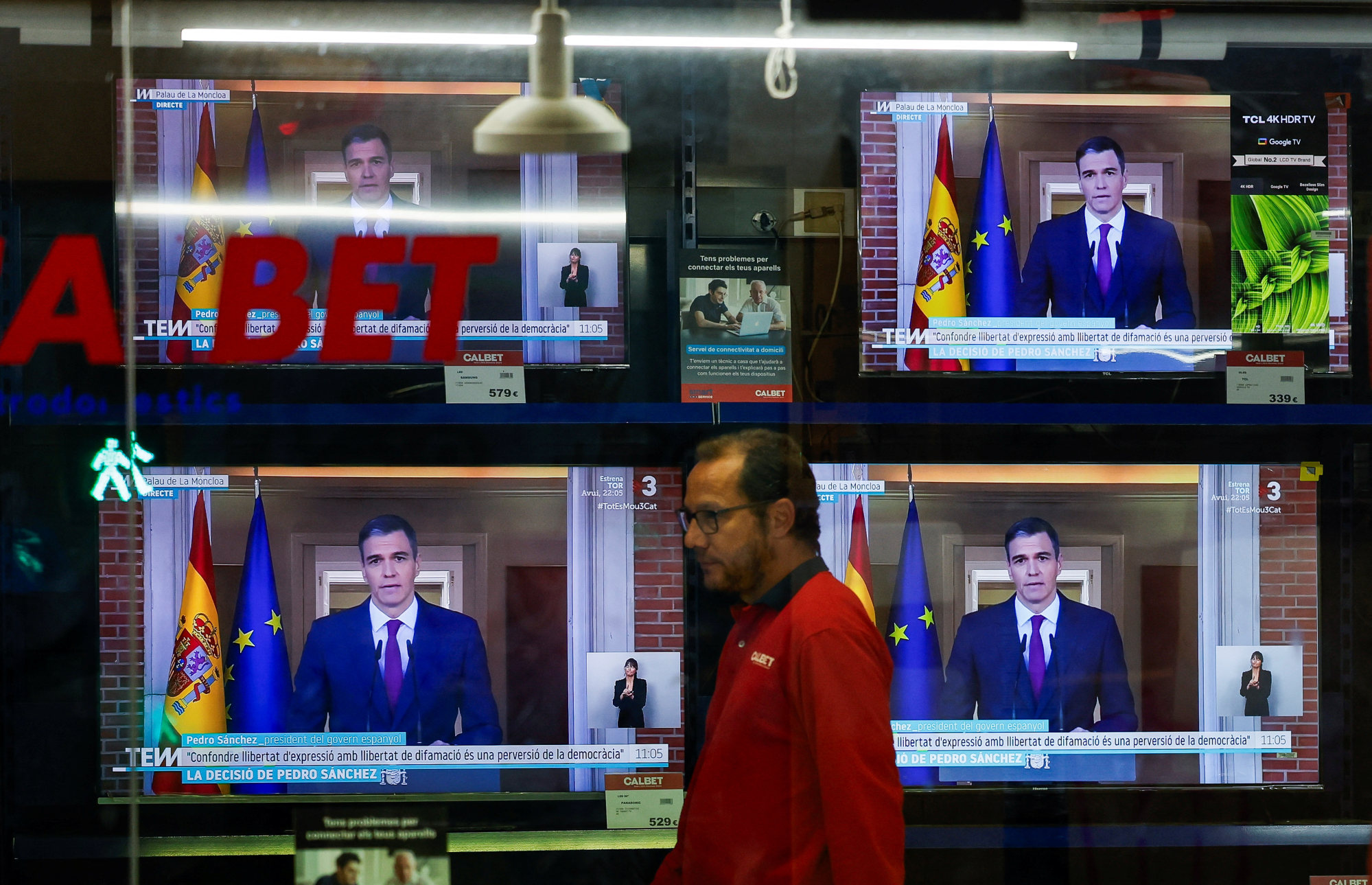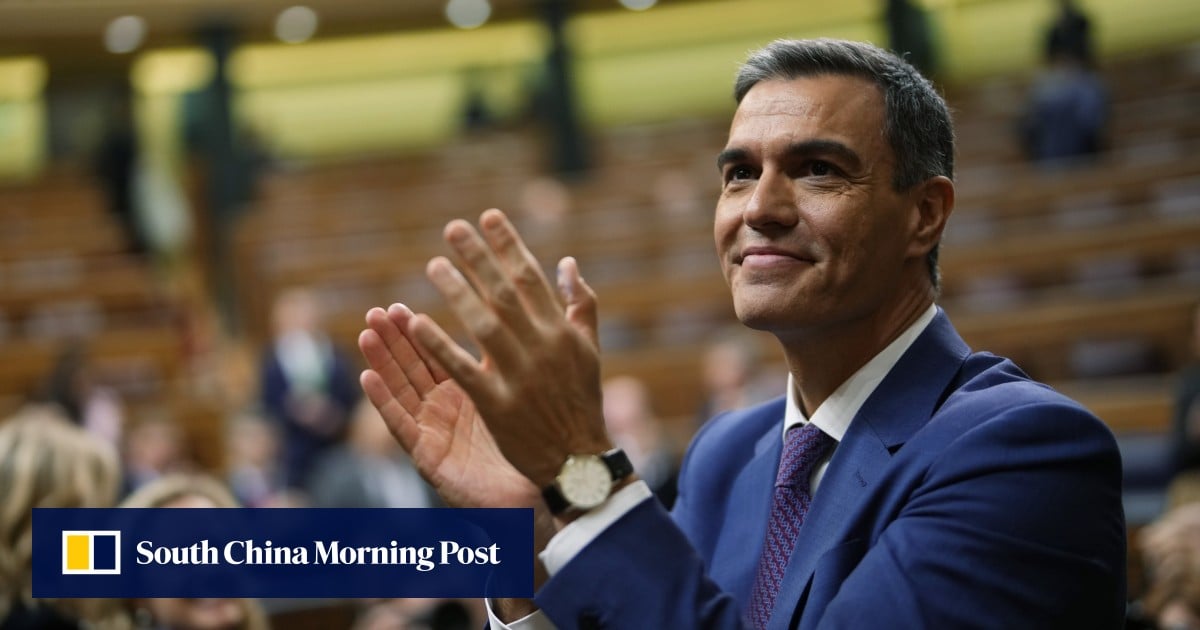Pedro Sanchez said he will continue as Spanish prime minister after retreating from public view for days to consider his future.
Sanchez announced his decision in a televised statement from his official residence in Madrid. Last week, the 52-year-old said he was thinking about resigning after a judge opened a case alleging influence-peddling against his wife Begona Gomez.
The announcement comes not long into a hard-won third term in office and ends days of confusion. He has repeatedly said the investigation is part of a right-wing plot to harass his family.
I have decided to continue, with more energy if possible, as the head of the government
“I have decided to continue, with more energy if possible, as the head of the government,” he said, without taking any questions. “I assume, in front of you all, my commitment to work tirelessly, firmly and calmly for the necessary regeneration of our democracy.”
Sanchez said he needed “to stop and reflect” on the growing polarisation within politics, which he said was increasingly being driven by “deliberate disinformation”.
While his fellow Socialists called on him to stay at a demonstration over the weekend, Sanchez’s critics accused him of playing the victim, and many in his party are unhappy with the way he handled the issue.
The inquiry into Gomez’s business dealings was instigated by an anti-corruption organisation with far-right links.
Spain’s PM Sanchez threatens to quit amid right-wing attacks on wife
Spain’s PM Sanchez threatens to quit amid right-wing attacks on wife
Sanchez and his government have long had a tense relationship with large parts of the judiciary, which they consider to be mostly conservative and close to the centre-right People’s Party. Socialists in parliament have been highly critical of the courts, arguing that many legal decisions are politically motivated.
The far-right group Vox has regularly sought to overturn laws passed by the government by appealing to the courts.
Sanchez’s decision comes at an intense moment in Spanish politics, with Catalonia holding regional elections on May 12.
Sanchez’s Socialist party had been on course to take power from the incumbent separatists, but the prime minister’s announcement last week upstaged the start of campaigning and forced the Socialist candidate to rework his strategy at the last minute.

The volatile politics in the country’s second-biggest region have had an outsize impact since an illegal referendum on independence in 2017 and the outcome of next month’s ballot could have broad national implications.
Although Spain’s tourism-dependent economy suffered more than many others from the pandemic lockdowns, Sanchez has overseen solid economic growth since taking office in 2018, regularly ranking among the best in the euro zone.
In spite of this expansion, Sanchez’s economic record has attracted criticism, largely because he’s seen government debt increase and failed to get his fractious coalition to back big reforms. The country ought to be the second-largest recipient of EU recovery funds, but has failed to take full advantage owing to its inability to push through the necessary legislation.
Additional reporting by Agence France-Presse

